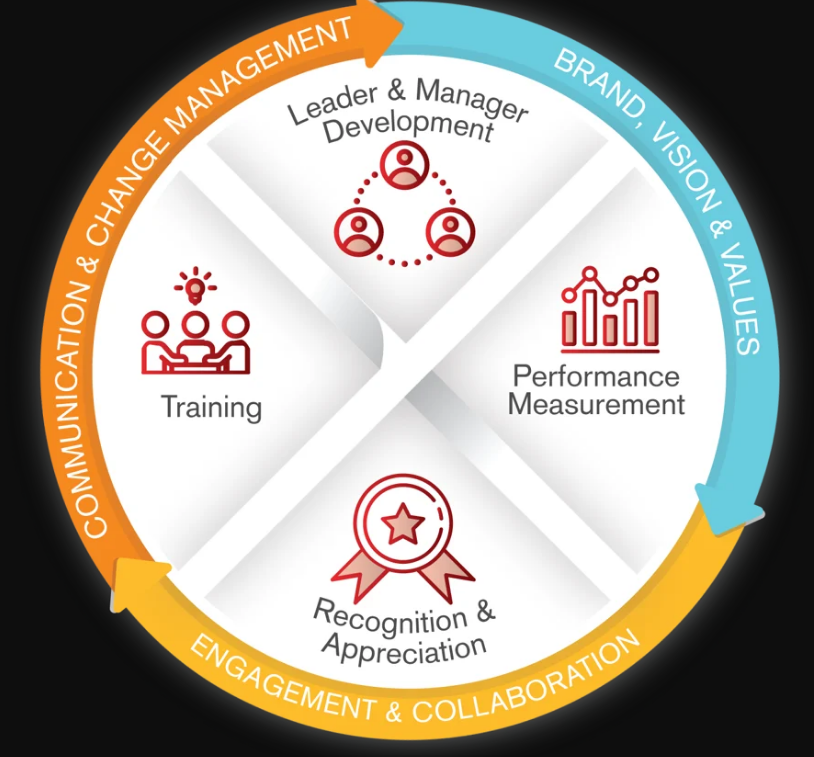Manager Training and Development: Key Strategies for Success

Effective management is crucial for the success of any organization. Managers play a vital role in guiding teams, making strategic decisions, and ensuring that business goals are met. To support managers in their roles and enhance their skills, comprehensive training and development programs are essential. Here’s a look at the key strategies for successful manager training and development.
1. Identify Training Needs
Assess Current Skills and Competencies: Begin by evaluating the existing skills and competencies of your managers. This can be done through performance reviews, feedback from employees, and self-assessments. Identifying gaps will help in tailoring the training program to address specific areas of improvement.
Set Clear Objectives: Define what you want to achieve with the training program. Objectives might include improving leadership skills, enhancing communication abilities, or developing strategic thinking.
2. Design a Comprehensive Training Program
Incorporate Various Learning Methods: A mix of learning methods, including workshops, seminars, online courses, and on-the-job training, can cater to different learning styles and ensure a well-rounded approach.
Include Soft Skills Training: In addition to technical skills, focus on soft skills such as leadership, conflict resolution, and emotional intelligence. These skills are crucial for effective management and team dynamics.
Offer Real-World Scenarios: Use case studies, role-playing, and simulations to provide managers with practical experience. This helps them apply their learning to real-world situations and enhances problem-solving skills.
3. Provide Continuous Learning Opportunities
Encourage Professional Development: Support managers in pursuing additional certifications, attending industry conferences, and participating in relevant workshops. Continuous learning helps managers stay updated with the latest trends and best practices.
Implement Mentoring and Coaching: Pair managers with experienced mentors or coaches who can offer guidance, share insights, and provide support. This personalized approach helps in addressing specific challenges and accelerating development.
4. Foster a Supportive Learning Environment
Promote a Culture of Feedback: Regular feedback from peers, subordinates, and supervisors helps managers understand their strengths and areas for improvement. Encourage a culture where feedback is viewed as a tool for growth rather than criticism.
Create Opportunities for Peer Learning: Facilitate group discussions, team-building activities, and knowledge-sharing sessions where managers can learn from each other’s experiences and perspectives.
5. Measure Training Effectiveness
Evaluate Learning Outcomes: Assess the effectiveness of the training program by measuring learning outcomes. This can include pre- and post-training assessments, feedback surveys, and evaluating changes in managerial performance.
Track Long-Term Impact: Monitor the long-term impact of training on manager performance and organizational outcomes. Look for improvements in team productivity, employee satisfaction, and overall business results.
6. Align Training with Organizational Goals
Link Training to Business Objectives: Ensure that the training program aligns with the organization’s strategic goals and objectives. This helps in developing managers who can contribute effectively to achieving business success.
Encourage Goal Setting: Help managers set personal and professional goals that align with their development plan and the organization’s objectives. This creates a sense of purpose and motivation.
7. Address Development Needs Proactively
Adapt to Changing Needs: Regularly review and update the training program to address evolving business needs and emerging management trends. This ensures that managers are equipped with relevant skills and knowledge.
Provide Resources and Support: Offer resources such as books, online courses, and tools that managers can use to further their development. Ensure they have access to support and guidance as they apply new skills in their roles.
Conclusion
Manager training and development are crucial for enhancing managerial effectiveness and driving organizational success. By identifying training needs, designing comprehensive programs, providing continuous learning opportunities, fostering a supportive environment, and measuring effectiveness, organizations can develop skilled managers who are equipped to lead teams, achieve business goals, and contribute to long-term success. Investing in manager development not only benefits the individuals but also strengthens the entire organization, leading to improved performance and growth.
- Industry
- Art
- Causes
- Crafts
- Dance
- Drinks
- Film
- Fitness
- Food
- Games
- Gardening
- Health
- Home
- Literature
- Music
- Networking
- Other
- Party
- Religion
- Shopping
- Sports
- Theater
- Wellness
- News


